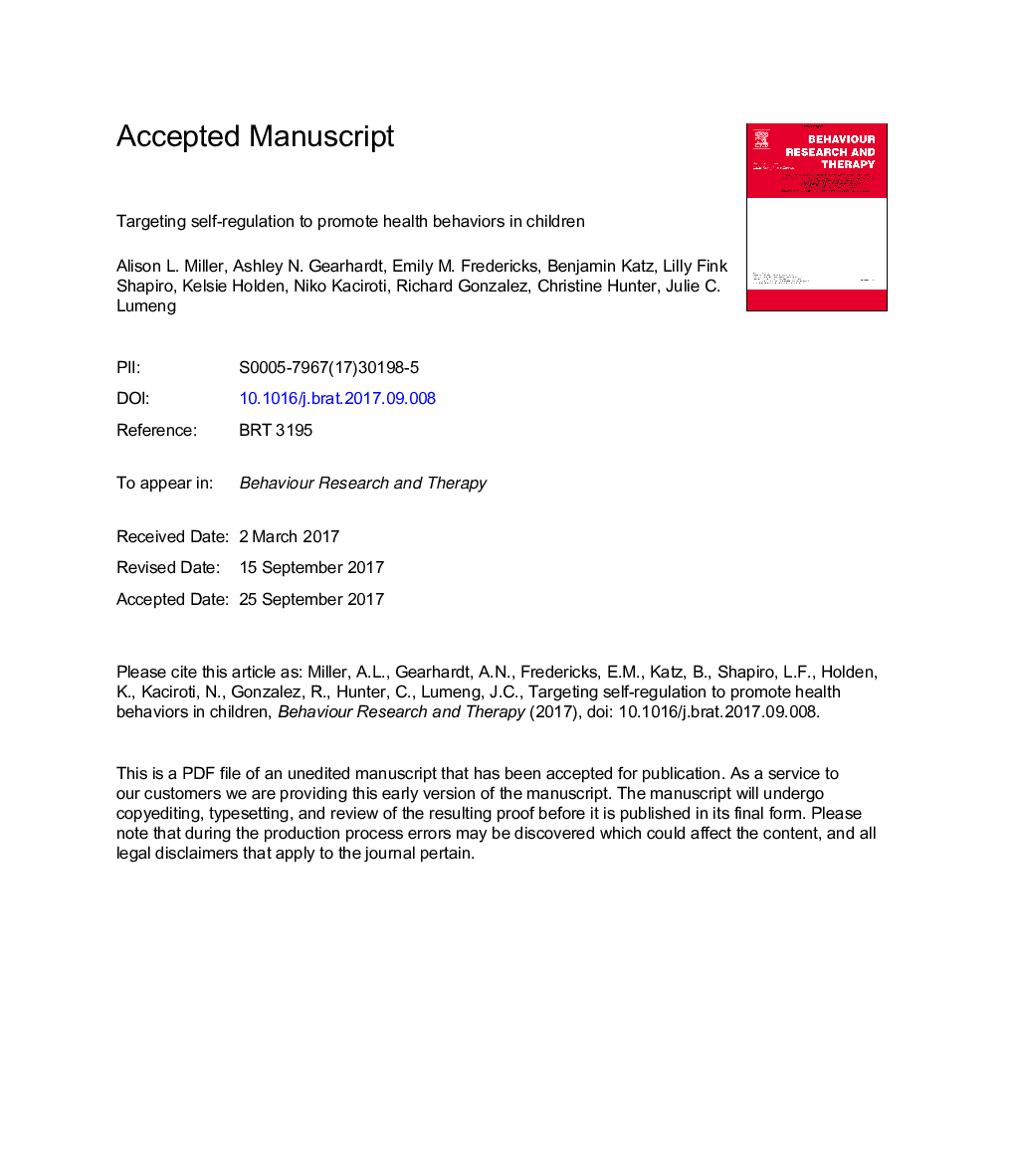| Article ID | Journal | Published Year | Pages | File Type |
|---|---|---|---|---|
| 7261910 | Behaviour Research and Therapy | 2018 | 40 Pages |
Abstract
Poor self-regulation (i.e., inability to harness cognitive, emotional, motivational resources to achieve goals) is hypothesized to contribute to unhealthy behaviors across the lifespan. Enhancing early self-regulation may increase positive health outcomes. Obesity is a major public health concern with early-emerging precursors related to self-regulation; it is therefore a good model for understanding self-regulation and health behavior. Preadolescence is a transition when children increase autonomy in health behaviors (e.g., eating, exercise habits), many of which involve self-regulation. This paper presents the scientific rationale for examining self-regulation mechanisms that are hypothesized to relate to health behaviors, specifically obesogenic eating, that have not been examined in children. We describe novel intervention protocols designed to enhance self-regulation skills, specifically executive functioning, emotion regulation, future-oriented thinking, and approach bias. Interventions are delivered via home visits. Assays of self-regulation and obesogenic eating behaviors using behavioral tasks and self-reports are implemented and evaluated to determine feasibility and psychometrics and to test intervention effects. Participants are low-income 9-12 year-old children who have been phenotyped for self-regulation, stress, eating behavior and adiposity through early childhood. Study goals are to examine intervention effects on self-regulation and whether change in self-regulation improves obesogenic eating.
Related Topics
Health Sciences
Medicine and Dentistry
Psychiatry and Mental Health
Authors
Alison L. Miller, Ashley N. Gearhardt, Emily M. Fredericks, Benjamin Katz, Lilly Fink Shapiro, Kelsie Holden, Niko Kaciroti, Richard Gonzalez, Christine Hunter, Julie C. Lumeng,
